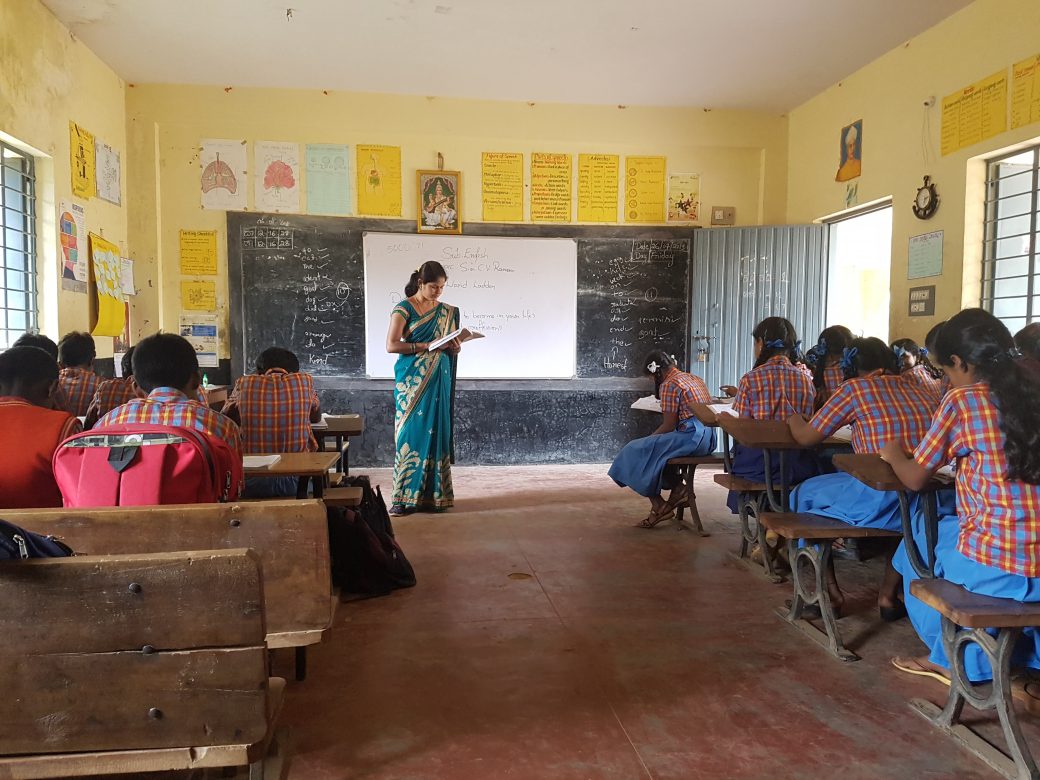
About the Project
This project is one of the 2017 WISE Awards finalists.
This project is one of the 2015 WISE Awards finalists.
STiR Education supports education systems to reignite intrinsic motivation in every teacher and official, to role-model the foundations of lifelong learning for every child. Since 2012, we have reached more than 200,000 teachers and 6 million children across three states in India (Delhi, Karnataka and Tamil Nadu) and the national education system in Uganda. We’re now aiming to reach 2 million teachers and 60 million children across up to six countries by 2025.
Context and Issue
STiR has a vision of a world in which all children develop a love of lifelong learning. This challenge is recognised in the definition of SDG4, which seeks to promote lifelong learning opportunities for all, and has been exacerbated by Covid-19. We believe it’s essential not just to respond to the immediate issues presented by the pandemic, but also to support greater resilience within our education systems. The current situation is part of a broader trend towards an increasingly uncertain future, including the climate crisis, increased inequality and rapid technological changes. So our education systems need to promote not only academic excellence, but also the skills and behaviours that will equip children to manage life in a world of ‘unknown unknowns’. At STiR, we’ve identified the core foundations that enable lifelong learning. These include socio-emotional outcomes that children develop, like engagement, safety, self-esteem, curiosity and critical thinking, as well as the intensity and intentionality of the teaching that children receive. Our approach is designed to build these foundations sustainably and at scale within education systems.
Solution and Impact
Engaging governments is essential if any intervention is to succeed, since they provide the best opportunity to ensure sustainability over the long term. So we support teachers and officials within existing government education systems by reigniting their intrinsic motivation. We partner with national/state governments over a five-year period to implement and embed our approach, which each government runs from the start with regular coaching, mentoring and monitoring support from STiR. We believe that the most sustainable way to build the foundations of lifelong learning is through strong role-modelling and trusting relationships at every level – between a child and their teacher, and between the teacher and the school leaders and officials who support them. Our approach is based around three core activities of peer networks, action and feedback, and reflection. Every teacher and official engages in these activities in our termly learning improvement cycles (LICs). Each LIC focuses on a different theme, for example the science of learning. First, district officials are introduced to the content for the next term. They will then lead training sessions for school leaders to build their confidence and capability to share this content with teachers. Teachers will learn new practices, to enable higher quality interactions with their children. At each level, we introduce monthly coaching and support to enable high-quality feedback, and regular alignment meetings at district and state levels provide opportunities for all stakeholders to analyse data, share learning and develop plans together to strengthen delivery. Over time, we expect to see officials and school leaders developing the foundations of lifelong learning. They will spend more time in schools supporting and understanding teachers, and recognise their crucial role in driving improvements. We’re encouraged by the results so far. Early findings from our external longitudinal study, conducted by Dr. Rebecca Thornton (J-PAL Affiliate Professor) and Victoria Brown (Ichuli), have shown that core routines to support officials and teachers were already in place and happening at relatively high quality after just one year. Officials are role-modelling engagement through actively observing and providing feedback to teachers, and the great majority of teachers find this feedback useful. Previously, in 2019, a DFID-commissioned research study found that after two years in Delhi, our approach had become deeply embedded and positively contributed to state system reform efforts. And a similar review commissioned by the Mastercard Foundation in 2019 found that our work in Uganda was directly supporting the government’s priorities for teaching and learning, and that officials showed commitment to the concept of teacher motivation.
Future Developments
The strategic plan has three key pillars:
1) To deepen our understanding about how we are driving behaviour change in children, teachers and officials. We’re keen to explore how we can use technology to support teachers and officials to more deeply reflect on their behaviours and have higher quality feedback discussions, through a pilot of a platform using WhatsApp. And we’re learning from the best elements of our Covid-19 response activities (which include synchronous and asynchronous remote learning for teachers and officials) to develop a blended model of delivery.
2) To further scale our work in new and existing geographies. We’re supporting our existing government partners to take over responsibility for further scaling within their geographies. And we’re also looking at new geographies to help us to reach our target of 2 million teachers and 30 million children by 2025. In 2021, we’re planning to expand operations to both Indonesia and Ethiopia. We’re also aiming to expand to Brazil and Egypt in the next two years, and we want to move into new states in India too to reach at least 20% of districts across the country.
3) To ensure the long-term sustainability of our approach through true government ownership. We’re working to agree commitments from governments to an approach which we call the central learning partnership. In this approach, senior officials in each district will take full ownership of the model, in place of existing STiR staff, and governments will also establish a central team of officials within their ministries (a ‘Lifelong Learning Unit’) to oversee the model. In our new geographies, we’re hoping to establish central learning partnerships from the outset to further reduce dependency and create the foundations for lasting change.


